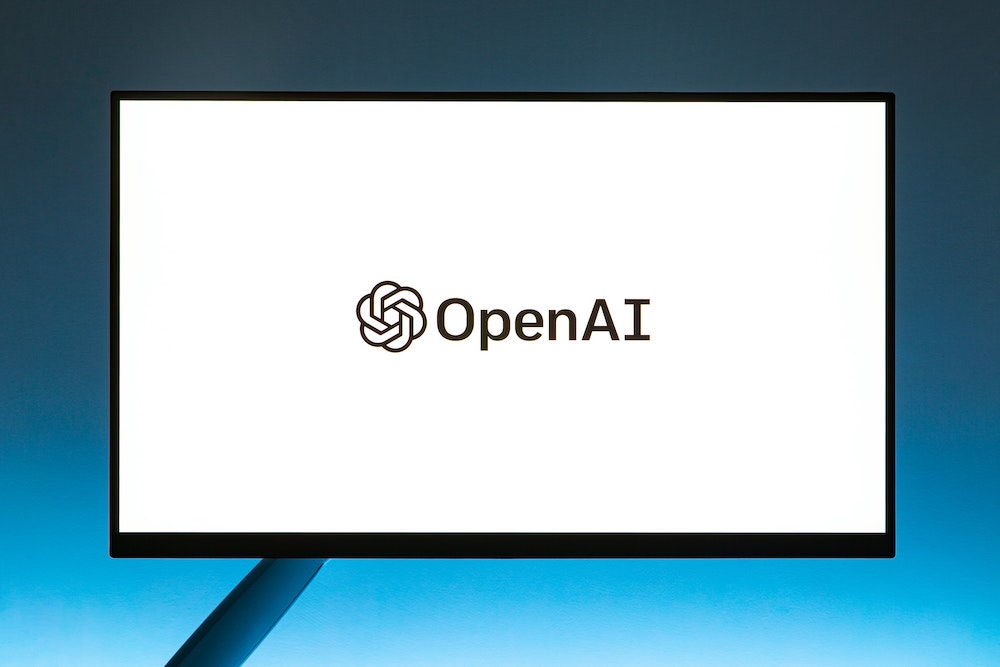OpenAI Stock: The Potential of a Game-Changing AI Company
Exploring the potential of OpenAI stock: Groundbreaking AI advancements, strategic partnerships, and the future of AI investing.
OpenAI, a leading artificial intelligence (AI) company, has been making waves in the tech industry with its groundbreaking advancements and innovative approaches. As the demand for AI technology continues to soar, many investors are curious about the potential of OpenAI stock. In this article, we will delve into the details of OpenAI, its achievements, partnerships, and the outlook for its stock in the market.
Understanding OpenAI Stock
Founded in 2015, OpenAI is an AI research laboratory with a mission to ensure that artificial general intelligence (AGI) benefits all of humanity. OpenAI strives to build safe and beneficial AGI, which refers to highly autonomous systems that can outperform humans in most economically valuable work. OpenAI aims to develop AI technologies that are accessible, secure, and ethical.
Pioneering AI Breakthroughs
OpenAI has been at the forefront of numerous AI advancements. One of its notable achievements is the development of GPT-3 (Generative Pre-trained Transformer 3), a state-of-the-art language processing AI model. GPT-3 has demonstrated impressive capabilities in natural language understanding, translation, writing assistance, and more. Its versatility has captured the attention of industries ranging from healthcare to content creation.
Expanding Partnerships and Collaborations
OpenAI has fostered strategic partnerships with renowned companies and organizations across various sectors. In 2020, Microsoft announced a significant investment in OpenAI, solidifying their collaboration to develop new AI technologies and solutions. OpenAI has also collaborated with companies like IBM and NVIDIA to push the boundaries of AI research and implementation.
Transforming Industries
OpenAI’s innovative technologies have the potential to revolutionize multiple industries. In the healthcare sector, AI-powered applications can enhance diagnostics, drug discovery, and personalized medicine. OpenAI’s language models have already been utilized in content generation, chatbots, and virtual assistants, streamlining workflows and improving customer experiences. With ongoing advancements, OpenAI is poised to play a vital role in shaping the future of transportation, finance, education, and more.
Ethical Considerations and Responsible AI
As AI progresses, ethical concerns become paramount. OpenAI is committed to ensuring responsible development and deployment of AI technologies. The organization emphasizes transparency, safety, and the avoidance of biases in its models. OpenAI has actively worked on refining its models and establishing clear guidelines to prevent misuse and promote ethical AI practices.
Financial Outlook and OpenAI Stock
Given the rapid growth and achievements of OpenAI, it is natural for investors to be curious about the company’s stock. It is essential to note that as of my knowledge cutoff in September 2021, OpenAI is a privately held company and not publicly traded on stock exchanges. Therefore, the general public cannot directly invest in OpenAI stock.
However, it is worth monitoring the company’s trajectory, as OpenAI’s success and potential partnerships may impact the broader AI industry and related publicly traded companies. Publicly traded companies involved in AI research and development, such as Microsoft, NVIDIA, Alphabet (Google), and IBM, could indirectly benefit from OpenAI’s advancements.
Factors to Consider for AI Investments
For investors looking to capitalize on the AI revolution, several factors should be considered:
a) Market Demand: Evaluate the current and future demand for AI technologies across various sectors. Look for companies that offer unique and scalable solutions.
b) Competitive Landscape: Analyze the competitive landscape and identify companies with sustainable advantages, robust intellectual property portfolios, and strong partnerships.
c) Research and Development: Assess the research capabilities and investments in AI by different companies. Companies with a strong commitment to ongoing innovation are likely to remain at the forefront of the industry.
d) Ethical Practices: Consider companies that prioritize responsible AI development, have clear ethical guidelines, and actively address concerns related to bias, privacy, and transparency.
e) Partnerships and Collaborations: Look for companies that have established strategic partnerships with industry leaders, as collaborations can drive innovation, market reach, and potential financial growth.
f) Financial Performance: Although OpenAI is not publicly traded, investors should analyze the financial performance of related companies in the AI industry. This includes revenue growth, profitability, and market share.
g) Regulatory Environment: Stay informed about evolving regulations and policies surrounding AI technology, as they can impact the growth and adoption of AI companies.
h) Long-Term Perspective: Investing in AI requires a long-term perspective. Evaluate the company’s vision, leadership, and ability to adapt to changing market dynamics over time.
Investment Alternatives in the AI Industry
While OpenAI stock is not available for public trading, there are alternative investment options in the AI industry. Investors can consider the following:
a) AI-focused Exchange-Traded Funds (ETFs): ETFs that track the performance of AI-related companies can provide exposure to the broader AI industry. Examples include the Global X Robotics & Artificial Intelligence ETF (BOTZ) and the ARK Autonomous Technology & Robotics ETF (ARKQ).
b) Established AI Companies: Invest in established companies that have a strong presence and expertise in the AI field. This includes tech giants like Microsoft, Alphabet (Google), NVIDIA, and IBM, which are actively involved in AI research, development, and implementation.
c) Startups and Venture Capital: Consider investing in AI-focused startups through venture capital funds or angel investing. This approach allows participation in early-stage companies with high growth potential.
d) AI Service Providers: Look for companies that offer AI-as-a-Service (AIaaS) or AI-related services, enabling businesses to leverage AI capabilities without investing in building their own AI infrastructure. Examples include Amazon Web Services (AWS), Google Cloud Platform, and Microsoft Azure.

While OpenAI stock may not be available for public trading at the moment, the company’s achievements, partnerships, and advancements in AI research have the potential to influence the broader AI industry and impact related publicly traded companies.
Risks and Challenges
Investing in the AI industry comes with its share of risks and challenges. It is important to be aware of the following:
a) Market Volatility: The technology sector, including AI, can be volatile, and stock prices may experience significant fluctuations. Investors should be prepared for short-term market volatility while focusing on long-term growth potential.
b) Regulatory Changes: Evolving regulations and policies related to AI can impact companies’ operations and growth prospects. Changes in data privacy laws or restrictions on AI deployment can affect the industry landscape.
c) Technological Advancements: The AI field is constantly evolving, and new breakthroughs can disrupt existing business models. Investors should closely monitor technological advancements and the competitive landscape.
d) Ethical Concerns: Ethical considerations surrounding AI, such as bias, privacy, and job displacement, can affect public perception and, in turn, impact companies’ reputations and market performance.
e) Competitive Landscape: The AI industry is highly competitive, with numerous companies vying for market share. Investors should carefully evaluate a company’s competitive positioning and its ability to differentiate itself in the market.
Frequently Asked Questions about OpenAI Stock
What is the name of OpenAI Stock?
OpenAI is a privately held company, and its stock is not publicly traded on stock exchanges. Therefore, there is no specific name or ticker symbol for OpenAI stock.
Can I Buy Shares in ChatGPT?
No, you cannot buy shares in ChatGPT or any specific AI model developed by OpenAI. ChatGPT is a product developed and offered by OpenAI, but it does not have its own separate stock or investment opportunity. OpenAI’s focus is on developing and deploying AI technologies rather than offering investment opportunities to the public.
Is OpenAI Publicly Traded?
OpenAI is a privately held company and is not publicly traded on stock exchanges. The company has raised significant funding from various sources, including private investors and strategic partnerships, to support its research and development efforts.
Does Elon Musk Still Own OpenAI?
Elon Musk was one of the co-founders of OpenAI and had been involved with the company. Musk stepped down from the company’s board in 2018.
OpenAI Stock Conclusion
OpenAI, with its groundbreaking advancements and commitment to responsible AI development, has garnered significant attention in the tech industry. While OpenAI stock is not publicly traded at present, monitoring the company’s progress and its impact on the broader AI industry can provide valuable insights for investors.
When considering investments in the AI sector, it is crucial to evaluate factors such as market demand, competitive landscape, research and development, ethical practices, partnerships, financial performance, regulatory environment, and long-term prospects. Additionally, alternative investment options, such as AI-focused ETFs, established AI companies, startup investments, and AI service providers, can offer exposure to the AI industry’s growth potential.
Investors should also be aware of the risks and challenges associated with investing in the AI industry, including market volatility, regulatory changes, technological advancements, ethical concerns, and the competitive landscape.
As the AI industry continues to expand and evolve, it presents significant opportunities for investors seeking exposure to cutting-edge technologies and transformative innovations. However, it is crucial to conduct thorough research, stay informed about industry developments, and seek professional advice before making any investment decisions.
While OpenAI stock may not be available for public trading at the moment, the company’s achievements, partnerships, and advancements in AI research have the potential to influence the broader AI industry and impact related publicly traded companies. By staying informed and monitoring the developments in the AI landscape, investors can position themselves to take advantage of the growth and opportunities presented by this rapidly evolving industry.
Disclaimer: The information provided in this article is for informational purposes only and should not be considered as financial or investment advice. Investing in stocks and the AI industry carries inherent risks, and individuals should conduct their own research and consult with a financial advisor before making any investment decisions.
Sources:
- OpenAI website: https://www.openai.com/
- Microsoft partnership with OpenAI: https://news.microsoft.com/2020/09/22/microsoft-invests-1-billion-in-openai-to-support-us-building-beneficial-agi/
- NVIDIA collaboration with OpenAI: https://blogs.nvidia.com/blog/2022/10/24/openai-gpt-4-nvidia-dlss/
- IBM collaboration with OpenAI: https://www.ibm.com/blogs/research/2022/05/openai-ibm-collaboration/
- AI-focused ETFs: Global X Robotics & Artificial Intelligence ETF (BOTZ), ARK Autonomous Technology & Robotics ETF (ARKQ)
- Established AI companies: Microsoft, Alphabet (Google), NVIDIA, IBM
- AI-as-a-Service providers: Amazon Web Services (AWS), Google Cloud Platform, Microsoft Azure
- Google Analytics for Beginners: Guide to Mastering Analytics - July 28, 2023
- National SEO for Lawyers: Drive Nationwide Traffic for Your Firm - July 28, 2023
- The Power of Local SEO for Lawyers: Build Your Practice - July 28, 2023


